Reds

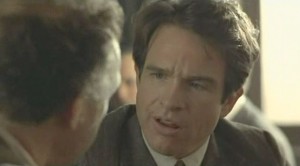 Here’s the idea behind “A Canadian, an American, a Lawyer, and an Elitist”: Rhett’s favorite movie is Meatballs 4, Shawn has an unhealthy fixation on Resident Evil, Richard scoffs at anything that isn’t pretentious and hoity toity, and Adam is a prick who hates everything. We all watch far too many movies, and spend our time analyzing them. So we each watch the same movie, write our analysis of them, and then go to a chat room to discuss it, unaware of what the others have written.
Here’s the idea behind “A Canadian, an American, a Lawyer, and an Elitist”: Rhett’s favorite movie is Meatballs 4, Shawn has an unhealthy fixation on Resident Evil, Richard scoffs at anything that isn’t pretentious and hoity toity, and Adam is a prick who hates everything. We all watch far too many movies, and spend our time analyzing them. So we each watch the same movie, write our analysis of them, and then go to a chat room to discuss it, unaware of what the others have written.
A warning: if you haven’t seen the film we are discussing, it may not be best to read this article, because it is spoiler heavy.
Keep in mind that when we watched and analyzed the film in early 2005, it was extremely hard to find. There was no 2 disc edition from Warner Brothers or any other version that would be easy for an American to find.
Analysis by a Canadian: Rhett Miller
Throughout the documentary interviews peppered throughout Reds, the participants come to the conclusion that they never really knew who John Reed really was. They know the facts, but they never really knew him, and after three and a half hours with the film, neither do I. Warren Beatty’s Reds is a significant achievement, an epic with the old fashioned romance that made the films of David Lean so successful many years ago. It is a politically motivated film, and one no doubt close to Beatty’s heart, a personal brand of filmmaking that would, along with Scorsese’s Raging Bull, close off all the promise and political consciousness of the American New Wave. It boasts some fine supporting performances and a credentialed crew, but ultimately the main detriment to the film is Beatty himself. Not Beatty the director, for which he does an admirable job, but Beatty the actor. His John Reed is an emotional cut out, a character fabricated by textbooks and historians rather than personality and heart. Beatty may get the facts surround his life straight, but his character of John Reed is an empty bore.
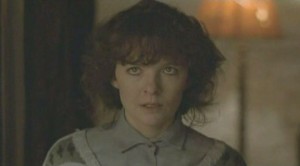 Beatty’s problem of character makes itself obvious in the first act, when the relationship between Louise Reed (Diane Keaton) and Eugene O’Neill (Jack Nicholson) has infinitely more spark than John and Louise ever have. Nicholson is dynamite in his performance, with each line cutting right to the heart. He speaks frankly and with little ambiguity, yet each line resonates with a piercing subtext. He plays O’Neill as an asshole, but the fire beneath his words makes him infinitely more interesting than the good intentioned encyclopedia entry that Beatty fashions his character around. Nicholson is only in the film for four short scenes, but each one, especially the confrontation between him and Louise after he finds her cheating, strikes emotional gold every time. Whether it is Nicholson’s charisma, or simply the better lines accredited to him, he always feels like the better side of the love triangle, and when the film veers away from him it seems false. We are led to believe in the first act that John and Louise are in love, but never is this passion communicated, which is especially surprising since Beatty and Keaton were supposedly in the midst of an off-screen romance. Throughout the picture their connection seems merely platonic, and in an epic anchored by love, the film seems misguided.
Beatty’s problem of character makes itself obvious in the first act, when the relationship between Louise Reed (Diane Keaton) and Eugene O’Neill (Jack Nicholson) has infinitely more spark than John and Louise ever have. Nicholson is dynamite in his performance, with each line cutting right to the heart. He speaks frankly and with little ambiguity, yet each line resonates with a piercing subtext. He plays O’Neill as an asshole, but the fire beneath his words makes him infinitely more interesting than the good intentioned encyclopedia entry that Beatty fashions his character around. Nicholson is only in the film for four short scenes, but each one, especially the confrontation between him and Louise after he finds her cheating, strikes emotional gold every time. Whether it is Nicholson’s charisma, or simply the better lines accredited to him, he always feels like the better side of the love triangle, and when the film veers away from him it seems false. We are led to believe in the first act that John and Louise are in love, but never is this passion communicated, which is especially surprising since Beatty and Keaton were supposedly in the midst of an off-screen romance. Throughout the picture their connection seems merely platonic, and in an epic anchored by love, the film seems misguided.
I am in no way suggesting that a film that sentimentalizes love amidst a true story background, like Pearl Harbor, is the better alternative, but James Cameron balanced the line between fictional and non-fictional storytelling much better with Titanic. Although Reds gets political, it always seems to keep the love story at the forefront, and when that love story is as interesting as elementary history classes, it is tough to stay involved. The interspersing of real-life recollections throughout the film also deters in keeping the audience at arm’s length from any sort of emotional involvement. These sort of documentary recollections collapse the fourth wall of fiction, and it makes it tough to accept the film is dramatic storytelling, instead always looking at it objectively like a political dissertation. With all its facts and distanced emotion, Reds plays more like an entertaining A&E biography than it does a compelling drama. Such objectivity isn’t necessarily a weakness, but when Beatty structures the film around the “will he or will he not return!” love story theatrics of John and Louise, the objectivity just helps to deaden Beatty’s already emotionless performance.
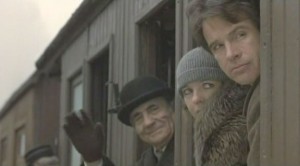 Reds is a film peppered with great moments, like Nicholson’s scenes and Keaton’s emotional breakdown upon learning of Beatty’s adultery, but when the film comes to a close, it all seems so distancing. John Reed dies at the end of the film, in his wife’s arms, no less, yet even then, when emotion should be at its peak, Beatty maintains artistically distant. His camera is placed outside the room, and we are forced to watch the drama through a door frame. Not only that, but Keaton’s back remains turned from the audience. In trying to capture the essence of John Reed as a historical character, Beatty has forgone feeling for fact, emotion for accuracy, and in the end it all seems somewhat empty. Beatty did create a personal film, since most of the drama plays out in bedrooms rather than the lavish sets Beatty paid huge budgets for, yet he never allows his audience to get personal with his characters. This is the kind of film you admire, but ultimately forget, since there is never a moral center worth connecting with. Reds is a quality picture, no doubt about it, but Beatty consciously makes it admirable rather than lovable. It captures the facts of the revolution, but the film’s revolutionary spirit is in desperate need of a coup.
Reds is a film peppered with great moments, like Nicholson’s scenes and Keaton’s emotional breakdown upon learning of Beatty’s adultery, but when the film comes to a close, it all seems so distancing. John Reed dies at the end of the film, in his wife’s arms, no less, yet even then, when emotion should be at its peak, Beatty maintains artistically distant. His camera is placed outside the room, and we are forced to watch the drama through a door frame. Not only that, but Keaton’s back remains turned from the audience. In trying to capture the essence of John Reed as a historical character, Beatty has forgone feeling for fact, emotion for accuracy, and in the end it all seems somewhat empty. Beatty did create a personal film, since most of the drama plays out in bedrooms rather than the lavish sets Beatty paid huge budgets for, yet he never allows his audience to get personal with his characters. This is the kind of film you admire, but ultimately forget, since there is never a moral center worth connecting with. Reds is a quality picture, no doubt about it, but Beatty consciously makes it admirable rather than lovable. It captures the facts of the revolution, but the film’s revolutionary spirit is in desperate need of a coup.
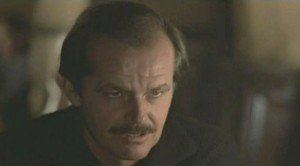 Analysis by an American: Shawn McLoughlin
Analysis by an American: Shawn McLoughlin
Reds is one of those films that are tailor made to be an Oscar winner. Unsurprisingly, as with similarly intentioned films, it was nominated for nearly everything and took home precisely what was the least deserved; Best Director and Best Cinematography. Reds does have a few lovely shots of Russian architecture in the second half of the film but it really isn’t any comparison to the awesome visuals of other nominees, Chariots of Fire and On Golden Pond. Where the film truly excels is in its major cast. Jack Nicholson steals all his scenes and Diane Keaton, as usual, out performs everyone else in the film.
When you have a film with characters played by actors with such huge name recognition, there is one major problem which almost always happens. The characters become the actors, not the other way around. Rarely do you see Jack Reed and Louise Bryant in this movie. You see only Warren Beatty and Diane Keaton. This is a shame, because there really is an interesting story to tell here, it just gets lost amidst the three hour run time.
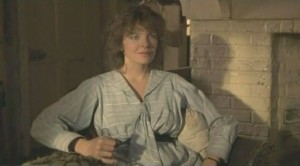 Films are supposed to move us to at least some degree, and there are only two real driving forces in this film. The previously mentioned love triangle, and Jack Reed and Louise Bryant’s almost Clark Kent/Lois Lane-ish drive to be where things are happening. Both of these aspects connect beautifully, both in how the film presents its characters, and also fits the preconceived notions that the audience has for the actors. Because we can buy Warren being charismatic and good intentioned, and because we already understand Diane to be an intelligent and independent woman, we are sold that they could connect here. A particularly touching scene is one in which both characters are offering editing advice to each other. The excitement that they have for this, and the way that they look at each other as they are being critiqued, show just how important it is that they are together on their trip.
Films are supposed to move us to at least some degree, and there are only two real driving forces in this film. The previously mentioned love triangle, and Jack Reed and Louise Bryant’s almost Clark Kent/Lois Lane-ish drive to be where things are happening. Both of these aspects connect beautifully, both in how the film presents its characters, and also fits the preconceived notions that the audience has for the actors. Because we can buy Warren being charismatic and good intentioned, and because we already understand Diane to be an intelligent and independent woman, we are sold that they could connect here. A particularly touching scene is one in which both characters are offering editing advice to each other. The excitement that they have for this, and the way that they look at each other as they are being critiqued, show just how important it is that they are together on their trip.
The interviews with “witnesses” that make up much of the film are one of Reds‘ most brilliant parts. These “witnesses” are people who were alive during the 1915-1930 eras that remember the real Jack Reed. Old people are always interesting, always biased, and definitely stuck in their ways. The best thing about old people is that they have this “just don’t give a damn” attitude and will freely tell you exactly how they perceive things. This is conveyed nicely in segments scattered throughout the film. Of the linear scenes, the pre-Bolshevik Jack segments are far more engaging. In them, there is a sense of discovery and youth that is somewhat lost after Jack decides to join with the Russians rather than observe them. It is true that this may have been part of the real subject’s development, but as the film goes towards the bickering over which group is the real leader of the communist movement it starts getting banal.
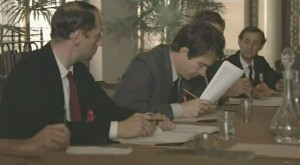 That isn’t to say there is little likeable in the second half of the film. There is plenty to like, but the viewer isn’t prepared for it by having the first half based primarily around a love triangle. After the intermission card, you want to continue the personal story. The politics of the film is fascinating though and it is in this part where the “witness” input really shines. The main problem though is that there is just too much bickering between politicians and not enough showing of how this is really affecting the people of either country. Taking away the more personal approach from the first half makes the viewer less involved.
That isn’t to say there is little likeable in the second half of the film. There is plenty to like, but the viewer isn’t prepared for it by having the first half based primarily around a love triangle. After the intermission card, you want to continue the personal story. The politics of the film is fascinating though and it is in this part where the “witness” input really shines. The main problem though is that there is just too much bickering between politicians and not enough showing of how this is really affecting the people of either country. Taking away the more personal approach from the first half makes the viewer less involved.
It is hard to discuss the ending, because this is a biopic and presumably it is historically accurate. Jack dies, everyone knows this. Why he was actually buried in the Kremlin I either missed, or wasn’t explained. I will admit that I know little of this period of history, particularly Russia’s but Reds is quite involving as a whole, and I remained interested. Even when it drags, the film is never boring, and if Paramount (who distributed it theatrically) ever moves their ass to release it, instead of creating new editions of Tommy Boy, I will definitely buy it. It is definitely something I would like to revisit in the future in digital clarity.
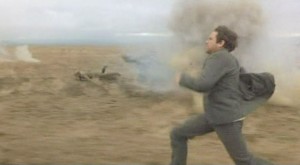 Analysis by a Lawyer: Richard Stracke
Analysis by a Lawyer: Richard Stracke
Writing about Reds presents a peculiar challenge. While viewing the film I neither loved nor hated it. The time passed. Sometimes slowly; other times briskly; but, in the end, I wasn’t moved or thrilled by what I saw. Labeled a thinking man’s Dr. Zhivago, I had high expectations. I enjoy big budget romance and am interested in Russian history. Why then, did Reds leave me lukewarm? It is a challenging question and one that I hope to resolve during the chat. For now, I’ll list the key elements and their fallacies.
I didn’t feel the swell of grand romance. I, like many viewers, tend to be forgiving when I like the leads. I could have overlooked the seemingly endless banter about 1920’s politics and the almost too literate script if I really wished the best for Beatty and Keaton. Her character was the highlight. Feisty, yet comical. Beautiful yet unrelenting. Beatty was adequate too. A bit too smug at times, but easier to put up with than many of his performances.
Although they worked adequately on their own, the film was pulled down by pacing and the constant intrusion of various interviewees. The lengthy political discussions, while important to establishing why Beatty was so fascinated by the Russian situation removed much of the film’s romantic interest. It was, for the most part, beautiful to look at. The early amour scenes recalled period paintings and photographs. They recalled (or possibly pre-dated) the look of Merchant/Ivory films such as The Bostonians and The Europeans. This beauty granted some poignancy to individual scenes, but the constant political intrusions constantly removed me from the action.
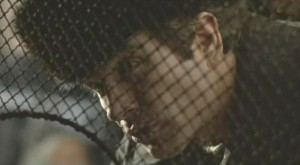 You might be thinking. “But he always goes on and on about how much he likes detachment and unsympathetic characters.” Yes, that is largely true, but there is a difference between a film or play that uses such techniques to permit the viewer to reflect and a film that simply inserts long winded, boring sequences for their own sake. Or, worse yet, uses the promise of romance as a means to persuade producers to finance and otherwise unmarketable film. I fear that this may have been the case. The film was Beatty’s pet project. I don’t know much about his background or real life political involvements, but this was surely a difficult project to pitch. As noted in one review, it’s a case of millionaires making a film that attacks their kind. Such ambition is admirable, but I felt that in order to get the lengthy speeches and such into the film without being too overwhelming for the audience, Beatty needed to come up with a way to draw crowds. Pitching it as a Lean style epic was just the ticket. The role fits both leads and the promise of the exotic (which the USSR certainly was) is normally a money maker.
You might be thinking. “But he always goes on and on about how much he likes detachment and unsympathetic characters.” Yes, that is largely true, but there is a difference between a film or play that uses such techniques to permit the viewer to reflect and a film that simply inserts long winded, boring sequences for their own sake. Or, worse yet, uses the promise of romance as a means to persuade producers to finance and otherwise unmarketable film. I fear that this may have been the case. The film was Beatty’s pet project. I don’t know much about his background or real life political involvements, but this was surely a difficult project to pitch. As noted in one review, it’s a case of millionaires making a film that attacks their kind. Such ambition is admirable, but I felt that in order to get the lengthy speeches and such into the film without being too overwhelming for the audience, Beatty needed to come up with a way to draw crowds. Pitching it as a Lean style epic was just the ticket. The role fits both leads and the promise of the exotic (which the USSR certainly was) is normally a money maker.
Like the Bay/Bruckheimer production of Pearl Harbor, Beatty probably felt that he could expand the film from the male dominated political film genre into classic Hollywood romance by including the promise of a pair of ill fated lovers. Throw in the Nicholson subplot, and you have the perfect recipe for a classic women’s weepy. Unfortunately, the attempt to blend serious minded politicking and emotive romance was detrimental to both genres. It seems that fans of either genre would be distracted by the constant juggling. Beatty’s film could have been improved if he changed the tone of the romantic scenes to provide a reprieve from the tiring politics. Instead, he remained consistent throughout. The oppressive mood eventually drained the life from the relationship.
Despite its flaws, the film was worthwhile. It is rare to find a Hollywood picture that dares to approach such subject matter without either forcing the faux heroism of the movement or villainizing its advocates. That is admirable.
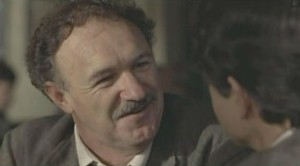 Analysis by an elitist: Adam Lippe
Analysis by an elitist: Adam Lippe
The most important aspect of a biopic is that it justifies what is so significant about its subject. Why are they making a movie about this person or this event? A lot of biopics fall into the trap of making assumptions, that just the famous name is enough. People know that Jackson Pollack was a painter, but what makes him Jackson Pollack? We see how much he drinks, and maybe that was an outlet for his pain, but how does being an alcoholic make him special? At least with an artist, we can visually see his work. With a writer, it’s not as if one can simply read the work out loud as narration. The director also runs the risk of turning his subject into a joke if the material doesn’t work in a filmic context, or if it’s simply out of date. When Jim Carroll’s poetry was read aloud in The Basketball Diaries, it sounded like the mopey writings of an overly romantic and naïve 16 year old, certainly not something worthy of an entire movie. If it appears to be laughable, it won’t hold an audience’s attention as a poignant subject matter.
Warren Beatty avoids this in Reds by never allowing John Reed’s writings to be heard. The ideas are discussed, but despite the insistence of the many real life “witnesses” (which, while a clever way to give authenticity to the film, is an awfully lazy way to get across exposition, and when Beatty is worst about telling instead of showing), the viewer never gets a sense of what makes him any more than idealistic and out of his depth. In fact, rather than show us what made Reed so special, we are shown scenes such as the one where he burns the dinner for his wife, which is supposed to show us how much he’s like the audience, making the common mistakes of the well-meaning heterosexual. For this reason, Reed never comes across as a complete character; he’s not the center of his own story. Beatty plays him like he did almost every one of his roles previously (“Shampoo, McCabe and Mrs. Miller, Bonnie and Clyde, etc.), confident yet flakey, good humored yet slightly oblivious, a constant outsider who misunderstands his new surroundings, unable to solve his own problems and confused by the needs of the scattered women around him. Perhaps to make him more endearing, Beatty includes a lot of “low comedy” moments, the bit with the crumpled up paper in the dog’s mouth, among others, undermined even further by Steven Sondheim’s “shaggy-dog-story” style music. This is at odds with the “epic” aspirations of a story about a man who supposedly made such an impact during an extremely important time in Russian history. While large films need scenes that build character in order for the big scenes to work, dawdling on cutesy dog bits is counterproductive in building momentum and only slows the enterprise down.
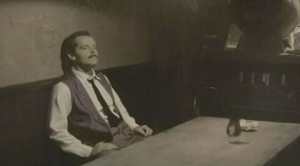 Since Reed isn’t the focus of his own film (odd, since he wrote the book it was based on), Diane Keaton’s Louise character is forced to carry it by default. The domestic scenes of the first half show her to be just as unfocused and flakey as Reed, but at least we understand her frustration. She is neglected by Reed who can’t keep a promise and she feels uncomfortable around his “people,” intimidated by their self-importance. Reed’s problems, perfectly outlined by Eugene O’Neill and by Louise, are immediately obvious. But his delusions – that he can be both impartial observer and participant in a revolution, that his “14 intellectuals in a basement” is any different than the small group of tyrants he’s fighting against, that people in power won’t change his words for their own cause – make him seem awfully lucky to have gotten as far as he had, integrity or not. Since we never witness any of his skills – his negotiations are always falling apart; his writing lands him in jail, but we don’t see the positive effects of it – we can’t determine whether he ever had any skills at all.
Since Reed isn’t the focus of his own film (odd, since he wrote the book it was based on), Diane Keaton’s Louise character is forced to carry it by default. The domestic scenes of the first half show her to be just as unfocused and flakey as Reed, but at least we understand her frustration. She is neglected by Reed who can’t keep a promise and she feels uncomfortable around his “people,” intimidated by their self-importance. Reed’s problems, perfectly outlined by Eugene O’Neill and by Louise, are immediately obvious. But his delusions – that he can be both impartial observer and participant in a revolution, that his “14 intellectuals in a basement” is any different than the small group of tyrants he’s fighting against, that people in power won’t change his words for their own cause – make him seem awfully lucky to have gotten as far as he had, integrity or not. Since we never witness any of his skills – his negotiations are always falling apart; his writing lands him in jail, but we don’t see the positive effects of it – we can’t determine whether he ever had any skills at all.
However, what Reds excels at is showing the characters being vulnerable; something Beatty had not been willing to do before. In the scene where he discovers Nicholson making out with Keaton, he reveals a sad and confused man. Another scene has one of the witnesses revealing his pride in his fight against communism, saying that he voted repeatedly to have not just alien communists deported but American communists, too, was certainly gutsy considering the subject matter. When Keaton visits Nicholson after Beatty leaves her for Russia, his bitterness and anger reveals itself, hiding behind the notion of a “truth teller.” Keaton is visibly hurt by this and cannot respond in kind. But she sees a side of him that had never been revealed before, certainly sealing off any possibility of them continuing their affair. With her continuing inability to finish anything – because, as Beatty points out, she is not ready to be taken seriously – the encounter is the one moment she is able to put a period at the end of the sentence.
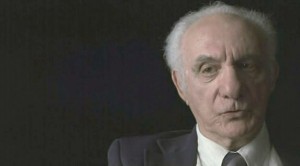 In the end, it becomes a strange irony that the intimate character sequences are far more interesting than the larger scale events being depicted. The latter half of the film is focused more on Reed’s troubles with getting a proper translator and an extended maudlin section of Louise trying to get him out of prison, which gives us no sense of Reed’s accomplishments. It only shows that, despite making an expensive film on an uncommercial subject, Beatty couldn’t avoid an absurdly romantic Hollywood reunion where Keaton searches for him coming off the train, immediately followed by a cartoonish “noble” death scene that seems like a hollow betrayal of its intentions. Whatever Beatty’s goals, whether it was to portray an important figure and event, generally shunned by the American public, or simply an incisive character study, Reds collapses under Beatty’s need to reassure the audience and make sure they still like him.
In the end, it becomes a strange irony that the intimate character sequences are far more interesting than the larger scale events being depicted. The latter half of the film is focused more on Reed’s troubles with getting a proper translator and an extended maudlin section of Louise trying to get him out of prison, which gives us no sense of Reed’s accomplishments. It only shows that, despite making an expensive film on an uncommercial subject, Beatty couldn’t avoid an absurdly romantic Hollywood reunion where Keaton searches for him coming off the train, immediately followed by a cartoonish “noble” death scene that seems like a hollow betrayal of its intentions. Whatever Beatty’s goals, whether it was to portray an important figure and event, generally shunned by the American public, or simply an incisive character study, Reds collapses under Beatty’s need to reassure the audience and make sure they still like him.
The Chat:
Adam Ok, my main concern with Reds; Is Diane Keaton cross-eyed? Because there are three or four scenes where she looks it. The look at the end, especially, when she finds out Beatty died.
Rhett Yes, she does seem borderline retarded during several segments.
Shawn Perhaps Louise Bryant was and she was just very into character.
Richard Borderline retarded = an appeal to the working man. Proof that she was like all of ‘them’.
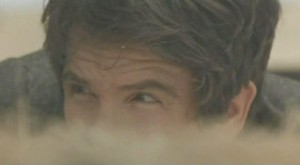 Rhett Well, maybe because Beatty’s character was such a bore to look at, crossing your eyes would make him seem at least slightly more three dimensional.
Rhett Well, maybe because Beatty’s character was such a bore to look at, crossing your eyes would make him seem at least slightly more three dimensional.
Shawn Or proof that she is easy to bed, Richard.
Rhett At least jack Nicholson finally got her in Something’s Gotta Give
Shawn Yes, even if it was 20 years later.
Adam I wonder what his pick-up line was. “Well, you can go as a turkey.”
Shawn “Right, you’re a turkey. Turkey, gobble these nuts.”
Richard Beatty killed the romance for me. I didn’t find him very charismatic. She (apart from retard moments) was charming enough to pay attention to. He was just sort of there.
Rhett I wondered why we were supposed to care about Beatty and Keaton’s relationship though, since they never really had any emotional connection to begin with, they were just two writers married to their jobs.
Adam Rhett, their relationship is the entire movie. The stuff in Russia, and virtually everything in the second half is quite scattered.
Rhett Yeah, that was where it faltered I thought, Adam.
Shawn That job is what connected them though.
Adam We never learn what he does exactly, why anyone is moved by his writing since we never hear any of it, just that he’s “important.”
Richard Rhett- That’s exactly why I struggled with the movie. I didn’t feel the chemistry. It felt like the romance was sort of half hearted- but necessary to push the subject matter on a major studio
Rhett Beatty’s character just seemed so shallow to me.
Adam He was the same character he’s been in every other movie. Compare him to McCabe or his character in Shampoo.
Shawn Compare him to Dick Tracy — still the same character. But the same could be said for Keaton or Nicholson, nothing was much of a stretch from previous works of theirs.
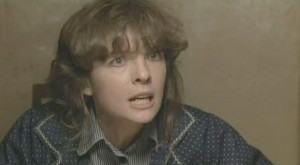 Adam Yes, but Beatty is playing the exact same guy. Same attitude, his characters are always all over the place, naïve, out of their depth.
Adam Yes, but Beatty is playing the exact same guy. Same attitude, his characters are always all over the place, naïve, out of their depth.
Richard Keaton’s seemed a bit more- at least she did some adventuring. That’s more than some her New York girl roles.
Shawn Same intellectualism though (Keaton).
Rhett Yeah I thought Keaton and Nicholson both did some stretching. I totally wanted Keaton to get back with Jack, at least he had some scruples and charisma.
Shawn I felt the romance was more developed than the political plot.
Rhett Yeah, it was, but the romance was so empty. I mean, shit, we should have at least heard the poem he wrote at the end.
Adam Shawn, it was, which is why it was so strange that Beatty the filmmaker take on such an unpopular subject in the midst of the cold war, get a huge amount of money, and then avoid it completely. That’s not a discredit. The witnesses play probably quite differently now than they did 25 years ago. We’ve been spoiled by more comic uses of the black background.
Rhett They were no different than what we would see on A&E today.
Adam And since we never learn who they were or what relevance they have. I thought it was just a lazy way to advance the story.
Richard That was exactly why I found them so distracting. Since I didn’t know who they were, it was like they just spouted little thought provoking phrases and it took me away from what connections I had with the romance/politics.
Shawn I enjoyed the witnesses more than anything else, because I like to listen to old people.
Adam The only interesting guy was the one who was so proud of himself for being against communism. The politics were what kept it alive for the 3 hours. What the movie needed was more scenes like the one between Beatty and Stapleton where they discuss socialism vs. communism, what works vs. what they expected to happen.
Rhett Yeah, since we are supposed to be immersed in this love story, I thought the witnesses always just took the viewer out when Beatty should have been drawing them in
Adam I’m shocked that Stapleton won an Oscar. Such a nothing role.
Rhett Stapleton didn’t really have much to do, yeah, I was surprised. She was way better in Interiors, which is surprising since that is an emotionally dead film as well.
Shawn I disagree with the witnesses taking away of the romance. Old people tend to romanticize everything about “the old days.” These were no different.
Rhett They never really had anything romantic to say. They didn’t really know much of Reed and Bryant’s relationship.
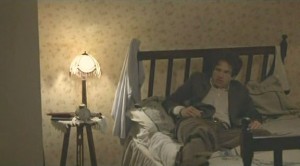 Shawn “Oh Jack and Louise were always thought of together,” etc.
Shawn “Oh Jack and Louise were always thought of together,” etc.
Rhett The most they knew is that maybe there was a ménage à trois.
Adam “I think people did just as much fucking as they do now. It was just more romantic. They had their heart in it.”
Shawn They talked more of that than the politics of the day.
Rhett Maybe it would have been romantic if the real life Louise recollected or something, but to me they just took away from any intended emotion and made it more like a Biography episode
Adam I kept thinking it would be revealed one of them was her. Was she dead by then?
Rhett She died in 1936.
Richard I don’t think it was so much the content of what they said, but the fact that it was without context. Plus the fact they seemed intended to do what Beatty (as actor) couldn’t. i.e. Establish a romantic mood.
Adam And also tie story points together whenever Beatty felt like jumping around, he used them as a device.
Rhett There were two editors in the picture, and I imagine they had their work cut out for them. All the Oscars the film won, I was actually surprised.
Shawn There is a difference between romance and love though. I don’t think that Beatty’s character is loveable at all, but they both shared a romantic conviction in their beliefs.
Adam The only time it worked was in the opening when we see Beatty running onto the back of the horse and carriage or whatever it was and the witnesses worked liked narrators. Honestly, the goofiness reminded me of his performance in Ishtar, which I have affection for, so I laughed.
Rhett The direction was standard, Stapleton was routine and the cinematography was hardly beautiful.
Shawn There was maybe two or three nice shots of Russia, but nothing exciting.
Adam There’s some nice stuff on the beach, photography wise, as well as the dark blues in Russia. It looks like a lot of Storaro’s films, though.
Rhett Compare the cinematography here with Storaro’s amazing work in 1900, there’s no contest.
Richard The only scenes I found visually striking were a few of the early romance scenes. They reminded me of some Merchant/Ivory films. Pastoral and pretty.
Adam But Rhett, compare the colors in Reds to the second half of 1900. It’s very similar.
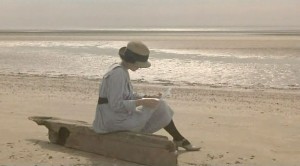 Rhett Yeah, but 1900 was way more interesting to look at. Beatty spent all this money on Reds and you never see it. It’s mostly in dankly lit bedrooms.
Rhett Yeah, but 1900 was way more interesting to look at. Beatty spent all this money on Reds and you never see it. It’s mostly in dankly lit bedrooms.
Adam But 1900‘s imagery was a distraction to the story.
Shawn I can’t imagine that the cast was cheap either, even then. I was never bored with Reds, but never fully engrossed by it either. At the intermission, I went to the kitchen to get some water and my mother was watching Father of the Bride Part II (also with Keaton). I almost wanted to watch that instead.
Adam There’s a point I think is important; If the movie is based on Reed’s book, why is the focus on Keaton, and where is all the material that would be culled from the book? Where exactly is this revolution? Someone mentions 10 Days That Shook the World exactly once, and then we never see any other reason why Reed is famous again. Sure, revolutions can be fought in meetings, but surely this wasn’t.
Shawn I guess I never thought that was really the intention.
Rhett It should have went more into his actual writings. I never really felt I knew Reed other than in a Ben Affleck in Pearl Harbor sense as some heroic love figure.
Richard What Adam said also contributed to Beatty’s blandness. I’m not sure if it was intentional or lazy. Maybe a way to keep presenting him an everyman?
Adam All the slapstick served the same purpose.
Shawn Continually hitting his head on the light fixture.
Adam I thought of an argument made by Bill Maher during the 2004 election, when everyone was saying that they liked Bush because he was just like them, and they could have a beer with him, he was your typical average guy. But a president shouldn’t be an average human being; he should be an exceptional human being. And you shouldn’t make a 195 minute epic about an average human, who is just like everyone else. Reed may have been extraordinary, but Beatty takes pains to make him ordinary.
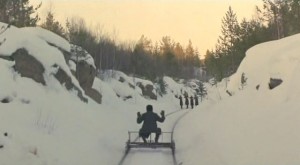 Rhett It’s kind of a wonder where all the time went, since the movie is so long, but we never get to really know Reed, or the love story, or the spectacle, or anything really. I did enjoy seeing the camels from Ishtar making an appearance though..
Rhett It’s kind of a wonder where all the time went, since the movie is so long, but we never get to really know Reed, or the love story, or the spectacle, or anything really. I did enjoy seeing the camels from Ishtar making an appearance though..
Shawn I think they could have lopped off the entire second half. Re-edited the first half, and had a decent enough film about reporters.
Adam Then Shawn, they have no reason to make the movie. They didn’t have to call him John Reed and Keaton’s helmet hair could have been a stronger plot point. That’s why she hides behind hats in Annie Hall.
Shawn True enough. And her nude portrait, that looks nothing like her.
Rhett I thought her lack of chemistry with Beatty was funny given that they were reportedly sharing an off-screen romance at the same time.
Adam That’s always how it works, Rhett. Think of any movie where the actors were fucking each other in real life, and they will have no chemistry.
Richard What complaints did the critics of the day raise?
Rhett I have an abridged Pauline Kael review. She wasn’t that fond of it.
Adam Kael’s review is unfair though, since it is her revenge against Beatty for the Hollywood job he stuck her with. A lot of the IMDB reviews claim that the movie is communist propaganda.
Shawn I think Woody Allen was heard to say “Well La-di-dah!” about the film. IMDB reviewers will call anything communist propaganda.
Adam I thought it showed that communists were just as unorganized and backbiting as more mainstream parties.
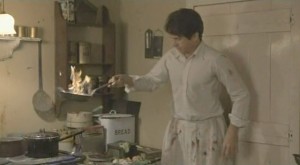 Shawn Rocky IV was communist propaganda
Shawn Rocky IV was communist propaganda
Adam Shawn, it’s the robot in the cast that solidifies Rocky IV as propaganda.
Shawn The Resident Evil films are commie too. Because the Russian lives.
Adam Did it have a political message?
Shawn You are right Adam, Reds shows often how the commies are disorganized. If there was a message, it was on the cutting room floor. I still look Reds as more of a biopic of the writers.
Richard Although it was never fully developed, do you think Beatty wanted to use the disorganization to criticize the US’s later red scare stuff? To show that there was no real threat?
Adam Richard, yes, but that’s all lost in the confusion, all the material with the translators, the “you know Broome St.?” stuff. I think the movie should have been re-titled 14 Intellectuals In a Basement. Actually, I think New York should be renamed that.
Shawn I do think it was somewhat ballsy for Beatty to play a commie sympathizer before the Cold War ended.
Adam Shawn, really? Because he comes across as very confused. He doesn’t know what he wants, other than that he thinks he should be able to speak for a lot of people he knows nothing about, fairly typical idealism.
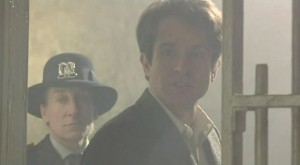 Rhett Kael actually thought Beatty was touching, that’s surprising.
Rhett Kael actually thought Beatty was touching, that’s surprising.
Adam Nicholson’s central speech, when he’s telling off Keaton, that deflates the meaning, because he’s absolutely right about both of them. She’s a nothing who “writes,” and he is clueless as to his niche.
Rhett Yeah, Jack seemed the most truthful and identifiable character in the movie
Shawn I’m not saying that he played a particularly good sympathizer, he just is a sympathizer.
Adam Beatty played Reed like a headless chicken.
Richard I agree Rhett. I always smiled when I saw him because I knew he’d say something worth listening to.
Adam Why does Beatty go to Russia? To get acknowledgment for his party, in a war he’s not involved in?
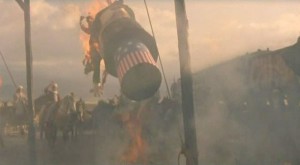 Shawn No, he goes there to have something to write about. He needs to be in the thick of it.
Shawn No, he goes there to have something to write about. He needs to be in the thick of it.
Rhett Not in the second half.
Adam He’s like a college girl, trying to do something important by protesting on her campus and thinking it makes a difference.
Rhett I was hoping he would have at least shaved his head.
Shawn Or took off his top.
Adam His frustration at the meetings when they won’t acknowledge him, played like he was a spoiled baby, not aware of his obsolescence.
Rhett It also seems like when any American goes to communist Russia movie convention dictates that they must at one point grow a beard.
Shawn [Smirnov]In Communist Russia, Everyone grows beard![/Smirnov]
Shawn Question: If Reed was so looked down upon, why was he buried in the Kremlin?
Adam Especially if all they did was twist his words.
Richard I was just about to ask the same thing? Was it just because he inspired the workers at that one meeting?
Adam It’s just another thing missing from the film, Richard. He could have spent 20 minutes on that, but decided on the dramatic train scene…”Oh my god, he’s dead! He’s not on the train. I can’t find him. Sob. Sob…. Oh there he is!…. No. Not him… Oh there- No, not him. That must be- Nope. Oh my god it’s him, at the last moment. Alive and well…” “You better have a noble death in the next scene though, hm, honey?”
Rhett A notable death that Beatty won’t even let us see.
Shawn Beatty has only directed what, 4 movies? Has he ever done a commentary track? I would love to hear one on this.
Rhett Heaven Can Wait, Reds, Dick Tracy, Bulworth. The first three seem to get way more credit than they deserve.
Shawn AFI knows all. And Reds is #55 on the 100 Passions list. So it is obvious that you are all wrong.
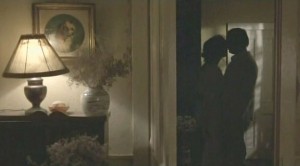 Adam Reds is one of those movies, like 1900, that everyone says is great, because they can never motivate themselves to sit through it. And they just assume, because of the epic length, that it must be great.
Adam Reds is one of those movies, like 1900, that everyone says is great, because they can never motivate themselves to sit through it. And they just assume, because of the epic length, that it must be great.
Richard I guess he could use the Bressonian excuse. He distilled cinema to its purest form- leaving plot to be filled in by the viewer. Of course, if he could only distill it to 3.5 hours, I’d hate to see the original cut.
Rhett I thought it was interesting that Keaton’s character mentions that Beatty’s character is just an artist, and that he has a responsibility to his craft over politics, since Beatty himself is doing the same thing that Keaton’s character is speaking out against. Putting politics before storytelling.
Shawn 1981 wasn’t a great Oscar year at all. Reds/ Chariots of Fire / Atlantic City / On Golden Pond / Raiders of the Lost Ark. Those were best picture nominees. Chariots of Fire won.
Adam Even the acting nominees are weak. Atlantic City is the only legit movie in there that really holds up, though it is never outstanding. A fairly typical gangster movie… With lemons
Rhett It seemed to be sympathy votes all around that year. Beatty for all his 70’s stuff, and then Fonda, Hepburn, Stapleton and Gielgud all for lengthy careers.
Shawn What is amazing is how non-winners are quickly forgotten.
Adam Even winners are forgotten.
Shawn I mean it has been 23 years since that awards ceremony, but if you showed that list to anyone on the street, they only movie they would recognize is Raiders.
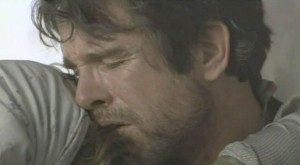 Rhett Did anyone else find Keaton’s phallic bottle stroking distracting in her seduction scene with Nicholson?
Rhett Did anyone else find Keaton’s phallic bottle stroking distracting in her seduction scene with Nicholson?
Richard That scene killed it, Rhett. It was very stimulating.
Shawn It reminded me of Rhett for some reason.



